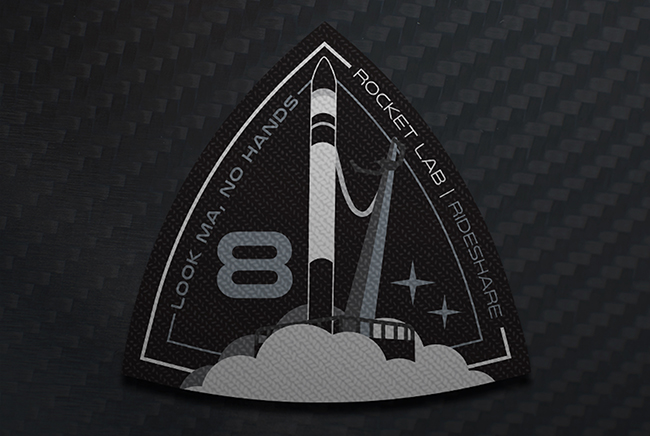
A Rocket Lab mission named "Look Ma, No Hands" in August will carry four satellites, including two cubesats for an experimental Air Force effort, into orbit. Rocket Lab photo.
The Air Force is preparing for two programs that will test new technologies in orbit, as well as a classified launch.
First up is Pearl White, a demonstration program slated for launch to low Earth orbit by Aug. 16 on a Rocket Lab rocket in New Zealand. Its satellites are designed by Virginia-based Tiger Innovations, and are expected to last for one year.
“The program goal is to design, develop, launch and operate two 6U cubesat experimental spacecraft as an on-orbit testbed for emerging technologies,” Air Force Space Command said in an Aug. 7 release. “The demonstration will test new technologies including propulsion, power, communications, and drag capabilities for potential applications on future spacecraft.”
Also on Aug. 7, the Air Force Space and Missile Systems Center announced it would pay Arizona-based Vector Launch $3.4 million for a small rocket mission that will reach initial launch capability in mid-2021. The ASLON-45 mission supports the Defense Department’s space test efforts to improve real-time threat warnings.
“We awarded this mission in just over three months from request for proposal release to contract award,” said Lt. Col. Ryan Rose, chief of Kirtland AFB, N.M.’s small launch and targets division. “My team is working hard to make future awards even faster and we’re using ASLON-45 as part of our building blocks to get to more responsive space launch.”
The Air Force wants to eventually be able to launch payloads in a matter of days rather than weeks or years so it can respond faster to changing military needs in space.
DOD on Aug. 7 announced a $156.8 million contract to the United Launch Alliance to handle the last in a set of three classified National Reconnaissance Office mission launches on its Delta IV Heavy rocket. The three launches are worth $467.5 million in total. The contract ends in January 2024, but the announcement does not specify when the NRO payload will launch.